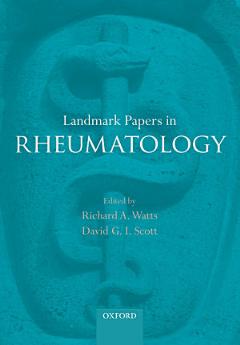Landmark Papers in Rheumatology
Richard A. Watts · David G. I. Scott
Jun 2015 · OUP Oxford
Ebook
456
Pages
family_home
Eligible
info
reportRatings and reviews aren’t verified Learn More
About this ebook
Rheumatic disease is a major cause of morbidity and disability in the Western world. There have been major developments in our understanding of the causes of rheumatic disease and in their treatment during the last half-century, and there are relatively few papers which can be regarded as truly 'landmark' in their construction and subsequent findings. Part of the Landmark Papers in series, this book provides a detailed review of the seminal papers that have paved the way for breakthroughs in the clinical management of the entire spectrum of rheumatic diseases.
About the author
Dr Richard A. Watts qualified from Oxford University Medical School in 1982. He undertook general medical training at the Whittington Hospital, London. In 1988, he was appointed research fellow in the Department of Rheumatology University College London where he undertook research and wrote his doctoral thesis on the idiotypic specificity of human monoclonal anti-DNA antibodies. He has held posts at Addenbrooke's Hospital, Cambridge, The Norfolk and Norwich Hospital, and Ipswich Hospital. Dr Watts has been a Trustee of the British Society for Rheumatology and Chair of the organizing committee of the annual scientific meeting. He was editor in chief of Rheumatology between 2002 and 2008. He is lead editor of the Oxford Textbook of Rheumatology. Professor David G. I. Scott is a Consultant Rheumatologist Norfolk and Norwich University Foundation NHS Trust, and an Honorary Professor at the University of East Anglia.
Rate this ebook
Tell us what you think.
Reading information
Smartphones and tablets
Install the Google Play Books app for Android and iPad/iPhone. It syncs automatically with your account and allows you to read online or offline wherever you are.
Laptops and computers
You can listen to audiobooks purchased on Google Play using your computer's web browser.
eReaders and other devices
To read on e-ink devices like Kobo eReaders, you'll need to download a file and transfer it to your device. Follow the detailed Help Center instructions to transfer the files to supported eReaders.






